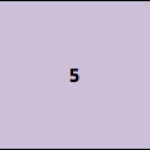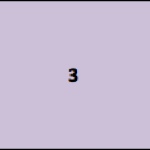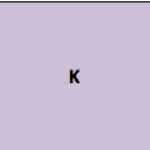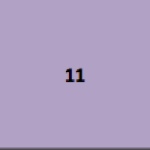Information
-
Audit Title
-
Document No.
-
Client / Site
-
Conducted on
-
Prepared by
-
Location
-
Personnel
Reading Literature
-
Quote accurately from a text when explaining what the text says explicitly and when drawing inferences from the text.
-
Determine a theme of a story, drama, or poem from details in the text, including how characters in a story or drama respond to challenges or how the speaker in a poem reflects upon a topic; summarize the text.
-
Compare and contrast two or more characters, settings, or events in a story or drama, drawing on specific details in the text.
-
Determine the meaning of words and prhases as they are used in a text, including figurative language such as metaphors and similes.
-
Explain how a series of chapters, scenes or stanzas fit together to provide the overall structure of a particular sotry, drama, or poem.
-
Describe how a narrator's or speaker's point of view influences how events are described.
-
Analyze how visual and multimedia elements contribute to the meaning, tone, or beauty of a text.
-
Compare and contrast stories in the same genre on their approaches to similar themes and topics.
-
Read and comprehend literature of appropriate complexity.
Reading Informational Text
-
Quote accurately from a text when explaining what the text says explicitly and when drawing inferences.
-
Determine two or more main ideas of a text and explain how they are supported by key details.
-
Explain events, procedures, ideas, or concepts in a historical scientific, or technical text, based on specific information.
-
Determine the meaning of general academic and domain-specifc words and phrases in a text relevant to agrade 5 topic or subject area.
-
Compare and contrast the overall structure of events, ideas, concepts, or information in two or more texts.
-
Analyze multiple accounts of the same event or topic, noting important similarities and differences in the point of view they represent.
-
Draw on information from multiple print or digital sources, demonstrating the ability to locate an answer to a question quickly or to solve a problem efficiently.
-
Explain how an author uses reasons and evidence to support particular points in a text, identifying which reasons and evidence supports which points.
-
Integrate information from several texts on the same topic in order to write or speak about the subject knowledgeably.
-
Read and comprehend informational texts, including history/social studies, science, and technical texts, at the high end of the grades 4-5 text complexity band independently and proficiently.
Foundational Skills
-
Know and apply grade-level phonics and word analysis skills in decoding words.
-
Read with sufficient accuracy and fluency to support comprehension.
Writing
-
Write opinion pieces on topics or texts, supporting a point of view with reasons and information.
-
Write informative/explanatory texts to examine a topic and convey ideas and information clearly.
-
Write narratives to develop real or imagined experiences or events using effective technique, descriptive details, and clear event sequence.
-
Use technolgy to produce and publish.
-
Develop and strengthen writing as needed by planning, revising, editing, rewriting, or trying a new approach.
-
Produce clear and coherent writing in which development and organization are appropriate to task, purpose and audience.
-
Conduct short research projects that use several sources to build knowledge thorugh investigation of different aspects of a topic.
-
Recall relevant information from experience or gather relevant information from print or digital sources; summarize or paraphrase information in notes and finished work, and provide a list of sources.
-
Draw evidence from literary or informational texts to support analysis, reflection, and research.
-
Write routinely over extended time frames and shorter time frames for a range of discipline spcific tasks, purposes, and audiences.
Speaking and Listening
-
Engage effectively in a range from group discussions with diverse partners on grade 5 topics and texts, building on others' ideas and expressing their own clearly.
-
Summarize a written text read aloud or information presented in diverse media and formats, including visually, quantitatively, and orally.
-
Summarize the points a speaker makes and explain how each claim is supported by reasons and evidence.
-
Report on a topic or text or present an opinion, sequencing ideas logically and using appropriate facts and relevant, descriptive details to support main ideas or themes; speak clearly at an understandable pace.
-
Include multimedia components and visual displays in presentations when appropriate to enhance the development of main ideas or themes.
-
Adapt speech to a variety of contexts, using formal English when appropriate to task and situation.
Language Standards
-
Demonstrate command of English grammar and usage.
-
Demonstrate command of English capitalization, punctuation, and spelling.
-
Clarify the meanig of unknown and multiple meaing words and phrases based on grade 5 reading and content, choosing flexibly froma range of strategies.
-
Demonstrate understanding of figurative language, word relationships, and nuances, in word meanings.
-
Acquire and use accurately grade-appropriate general academic and domain-specific words and phrases, including those that signal contrast, addition, and other logical relationships.
-
Use knowledge of language and its conventions when writing, speaking, reading, or listening.










